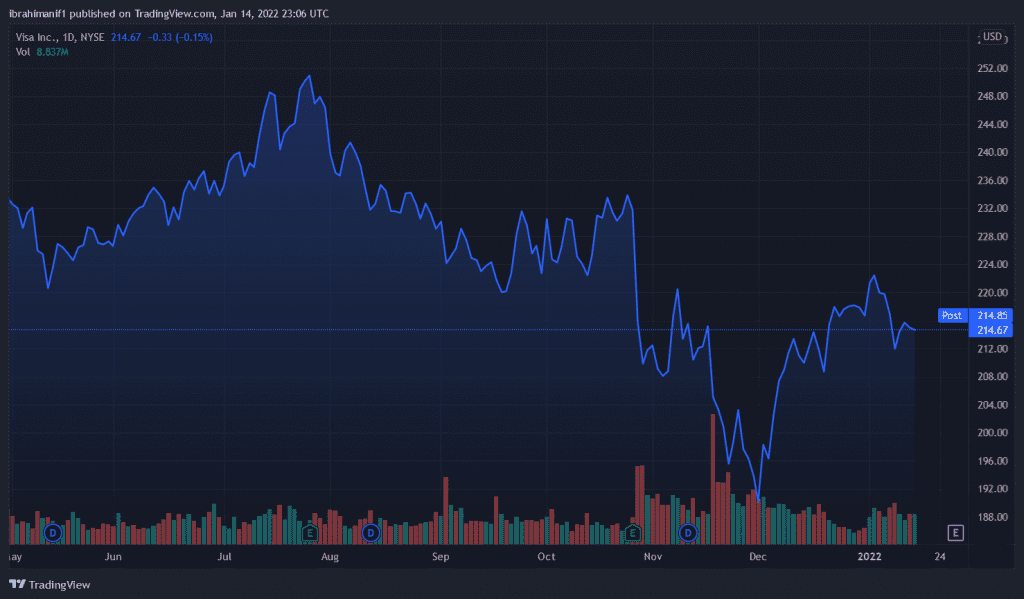Visa and ConsenSys, a blockchain software startup, are working to develop a central bank digital currency (CBDC) pilot program to explore retail applications such as cards and wallets.
Both firms will first meet with an estimated 30 central banks to discuss the goals that governments hope to achieve with government-backed digital currency. The pilot program is scheduled to begin in the spring of this year.
Visa To Pilot CBDC In Select Countries
Visa (V) announced on Thursday that it will take its crypto services to the next level by teaming with blockchain software company Consensys to create a central bank digital currency onramp (CBDC).
The payments giant plans to launch a “CBDC sandbox” in the spring, where central banks can try out the technology after minting it on Consensys’ Quorum network.
Visa Trades At $214. Source: TradingView
Customers will be able to use their CBDC-linked Visa card or digital wallet anyplace Visa is accepted globally, according to Catherine Gu, Visa’s head of CBDC, who spoke with ConsenSys in a blog post Q&A.
Gu Said:
“If successful, CBDC could expand access to financial services and make government disbursements more efficient, targeted and secure – that’s an attractive proposition for policy makers.”
A CBDC is a type of central bank obligation that is issued in digital form and can be used by the general public, comparable to the US dollar.
Related article | Visa Survey Shows Crypto Payments Could Boom In 2022
Countries Are Launching CBDCs
The decision comes as regulators around the world struggle to figure out how to treat CBDCs in a changing financial landscape dominated by cryptocurrencies. The notion that crypto and digital money will upend financial markets or replace fiat currency is a major issue.
Mastercard also announced the launch of a CBDC test platform in 2020, which allowed banks to simulate the issuance, distribution, and exchange of CBDCs amongst banks, financial service providers, and consumers.
“Central banks are moving from research to actually wanting to have a tangible product they can experiment with,” Chuy Sheffield, Visa’s head of crypto.
If Visa is successful, it might help bridge the gap between central banks and financial institutions. Visa is accepted by over 80 million merchant locations worldwide.
In the last year and a half, the number of countries investigating CBDCs has more than doubled. According to the Atlantic Council’s CBDC tracker, at least 87 different countries — accounting for 90% of global GDP — are considering financial technology in some way.
China has already started a number of digital yuan pilot initiatives and plans to accept the currency for the Beijing Winter Olympics. Nigeria and the Bahamas have their own CBDCs in circulation.
In early December, Visa announced the formation of a worldwide crypto advisory practice to assist financial institutions in developing their cryptocurrency operations as demand for crypto goods grows.
Related article | Visa Is Building A Payment Channel Network On Ethereum
Featured image from Pixabay, chart from TradingView.com


